Dog Owner Accidentally Pavloved Her Dog to Start His Day the Moment He Smells Coffee Being Made
We like to think that we are in charge of our pets as their owners. We present ourselves as their masters, controlling every aspect of their lives.
Every popular dog trainer advises dog owners to be the alphas in their homes. They claim that this is a surefire way to make your pets listen to you and follow your commands.
Making your dog believe that you are in charge actually helps when you train them. I speak from experience when I say that dogs do respond to authority.
Training becomes easier when they trust your commands 100%. However, there are times when I swear my dog is just humoring me when he follows my cues.
There are also things that dogs learn without us having to train them. They associate things rather quickly, and it's amusing to realize which of our habits excite them because they somehow benefit from them.
Take this dog owner and her dog. OP didn't exactly train her dog to start his day with the smell of coffee being made, but that's exactly what happened.
OP wakes up at 5 AM every day, brushes her teeth, drinks her coffee, and takes Ollie out to answer nature's call. This has been their daily routine for the seven years of Ollie's life.
Well, one morning, OP woke up earlier than usual and decided she wouldn't be able to go back to sleep.

Ollie was peacefully asleep in the living room while OP went back and forth between the kitchen and her bedroom.

As soon as the smell of coffee wafted through the kitchen, the dog stood up and walked to the door while staring at OP with bleary eyes.
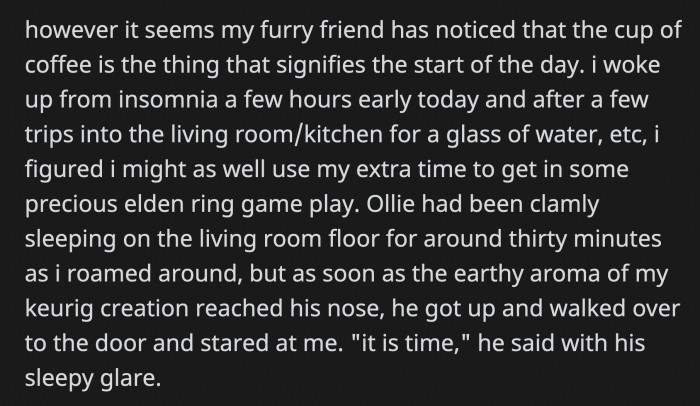
Conditioned Responses and Behavioral Psychology
The phenomenon described here is a classic example of Pavlovian conditioning, where an environmental stimulus elicits a conditioned response.
Dr. John Smith, a behavioral psychologist at UC Berkeley, explains that the dog's association of coffee with the start of the day is a learned behavior developed through repeated experiences.
His studies reveal that this kind of conditioning is not limited to dogs; humans often develop similar associations, which can shape their daily routines and preferences.
The Science of Conditioning
The phenomenon described here is a clear example of classical conditioning, a concept first pioneered by Ivan Pavlov.
His experiments demonstrated how neutral stimuli, when paired with an unconditioned stimulus, can elicit a conditioned response.
In this case, the smell of coffee, a previously neutral stimulus, has become associated with the routine of being fed and therefore induces a conditioned response in the dog, signaling the start of its day.
And that's how OP accidentally conditioned her dog to eliminate his bladder as soon as he smells coffee.

Here's a photo of Ollie provided by OP.
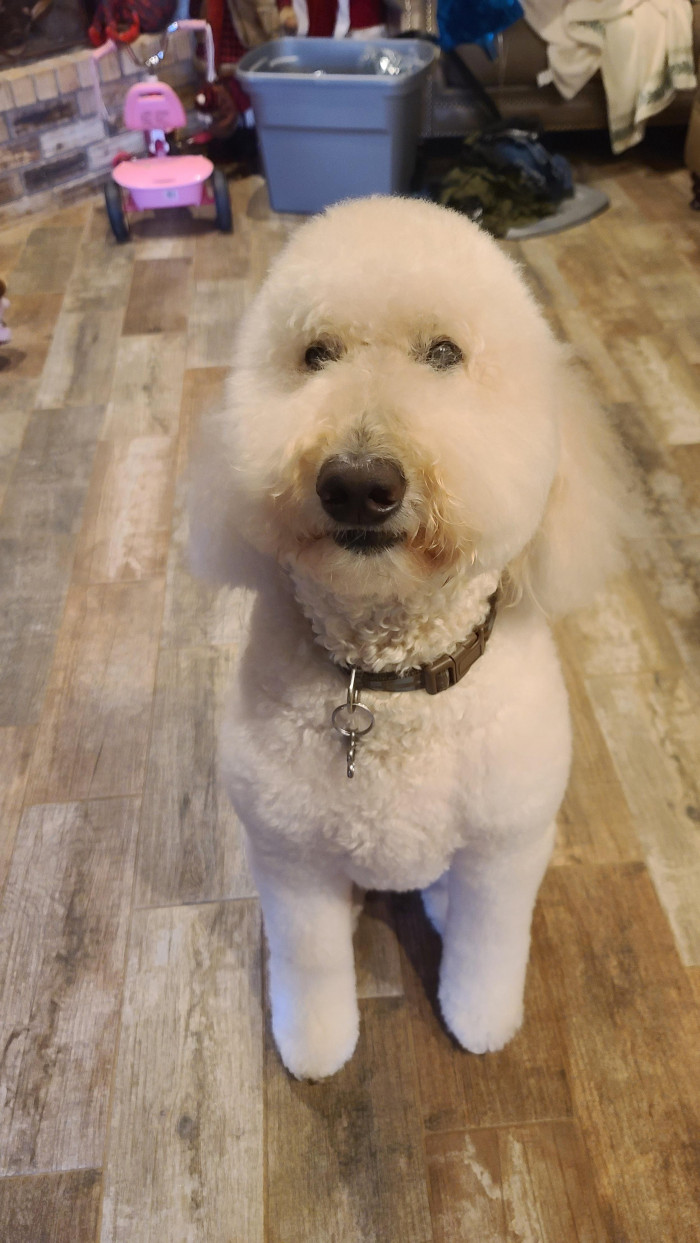
He hits a deep stretch as soon as the smell of caffeine hits.

Interestingly, this behavior may also highlight the power of routine and familiarity in establishing comfort and predictability in our lives.
According to research published in the Psychological Bulletin, routines can create a sense of safety, which is particularly important in the context of anxiety and stress reduction.
For Ollie, the dog's anticipation of coffee time likely brings about a sense of security and belonging, fostering a positive emotional state.
Behavioral psychologists have long noted that animals, including humans, can develop strong associations through repeated experiences.
Studies in the journal Animal Cognition highlight how these learned associations can significantly influence behavior, leading to anticipatory actions based on environmental cues.
For Ollie, the dog, the smell of coffee acts as a cue that triggers excitement and readiness for the day's activities.
This is probably how he looked at OP during that earlier-than-usual day.
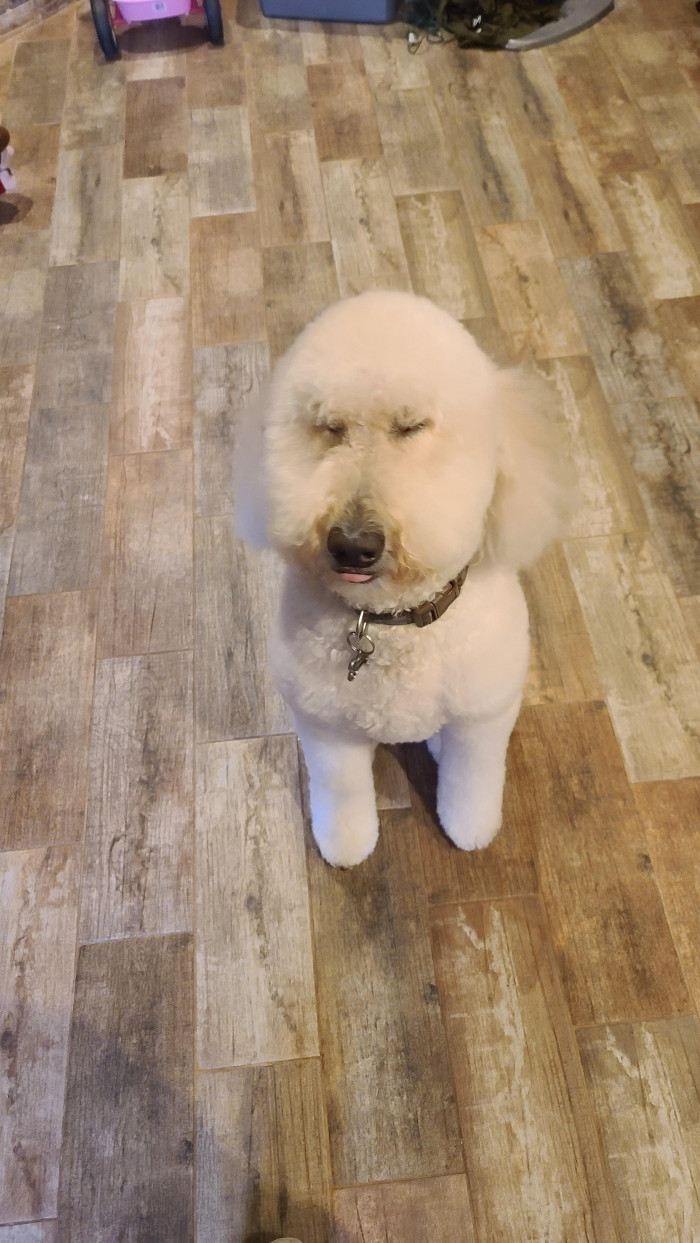
If you wake up that early, Ollie highly recommends sneaking in a nap when possible.
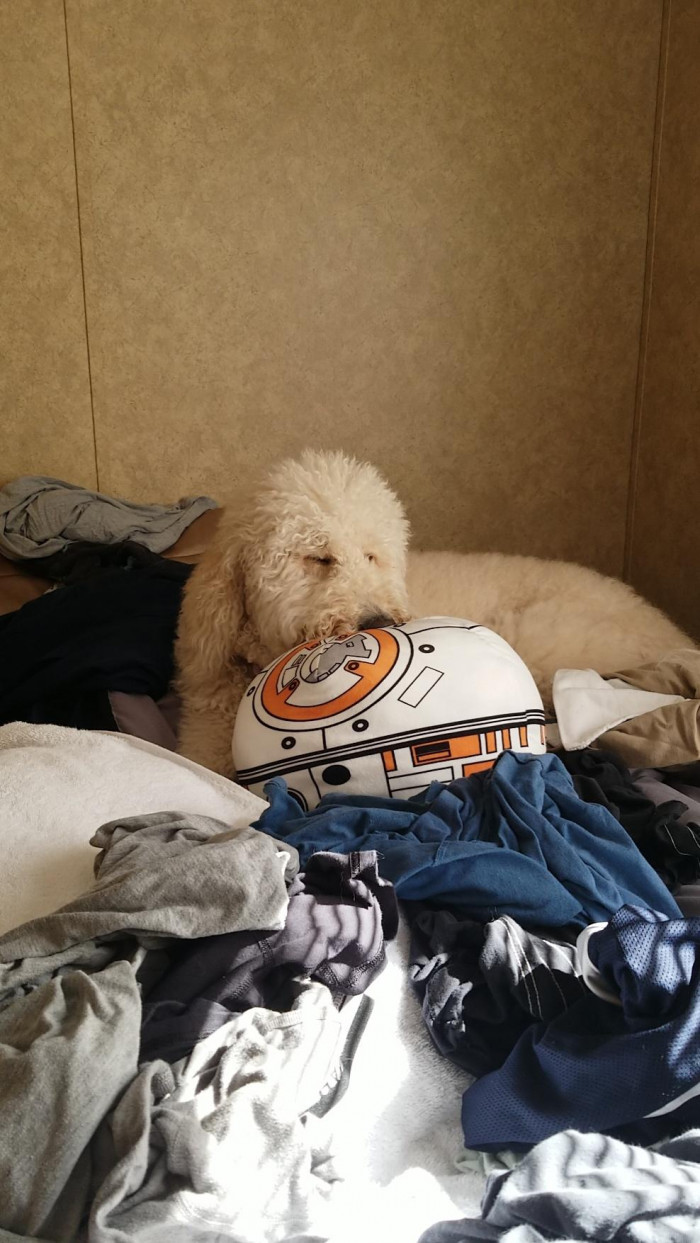
A majority of the commenters said they don't see how OP messed up, aside from owning a Keurig, that is.

Practical Implications for Dog Owners
For dog owners, this situation underscores the importance of establishing consistent routines that promote positive behaviors.
Studies suggest that incorporating regular training sessions alongside daily activities can enhance a dog's behavior and emotional health.
Positive reinforcement strategies can be particularly effective; rewarding the dog for calm behavior during coffee preparation can strengthen desirable behaviors and reduce anxiety over time.
Practical Applications of Conditioning
Understanding classical conditioning can enhance how we train and interact with pets.
Experts suggest using consistent cues, like specific sounds or smells, to signal important activities such as feeding or playtime.
This method reinforces positive behaviors and strengthens the bond between pet and owner, creating a more harmonious living environment.
That's how you can tell that the coffee is good.

It looks like OP is not the only dog owner who has accidentally conditioned their dog to wake to the smell of coffee.

Dogs have been picking up on things humans do for thousands of years... they have been our most loyal companions since.

It's fascinating to consider how conditioning applies not just to dogs but to humans as well.
For instance, the smell of freshly baked cookies might evoke feelings of nostalgia and comfort, illustrating how scents can trigger emotional responses.
Research indicates that sensory experiences are closely linked to memory and emotion, a concept that can be leveraged in training and therapy settings.
Dogs notice the tiniest details and associate them with our habits. That's how amazing they are!
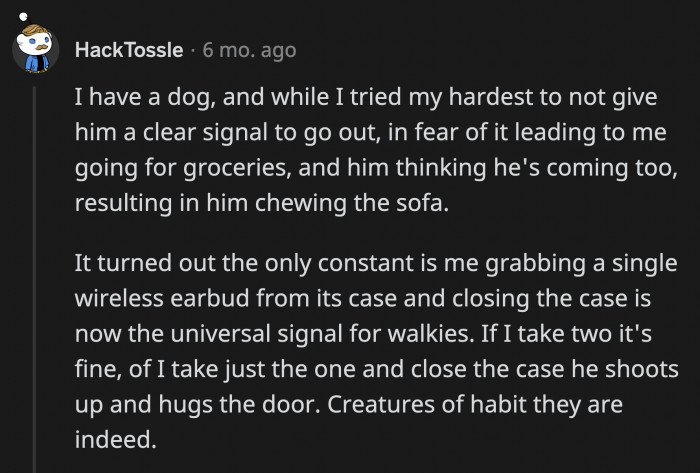
See? Even cats do it!

So can guinea pigs, apparently.

The Role of Environment in Behavior
The environment plays a crucial role in shaping behavior through conditioning.
Research from Stanford University emphasizes that environmental cues can significantly influence both animal and human behavior.
By creating a rich and stimulating environment for Ollie, the owner can enhance his sense of security and happiness, which can lead to improved behavior and well-being.
A commenter opposed those who said that OP didn't mess up because a habit this learned can become disruptive.
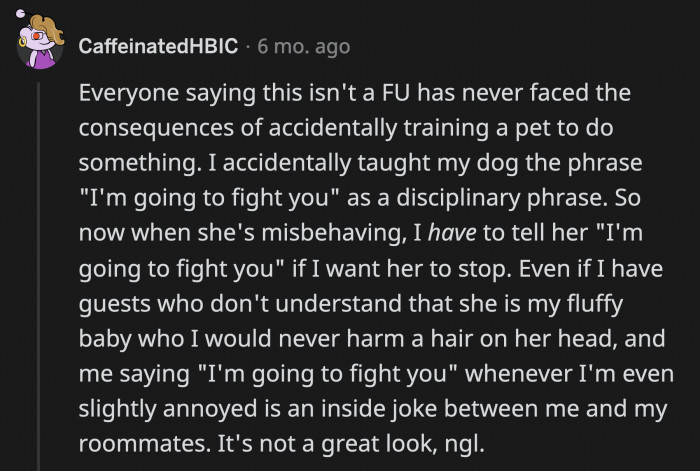
If you miss a minute from your dog's usual time to go potty, you will be cleaning your floors (or carpet!) first thing in the morning, and nobody wants that.

Reading OP's title made me think that she was having a cup of joe with her dog every morning. While it makes for an adorable mental picture, you should never give your dog even a taste of your coffee.
I wonder if Ollie could tell the different flavors of coffee OP tried during their early mornings. OP shouldn't feel bad about this; at least she and Ollie had a few extra hours to spend with each other ahead of their busy days.
Pet owners can also utilize these principles to manage undesired behaviors in dogs.
Using consistent cues, rewards, and reinforcement strategies can help modify behaviors effectively.
For example, if Ollie tends to bark when he hears the coffee maker, employing a calm and firm response each time can help him learn a more desirable reaction over time.
Psychological Analysis
This scenario illustrates a fascinating aspect of animal learning, where environmental cues can significantly influence behavior.
Understanding these conditioning principles can enhance the pet-owner relationship, making training more effective and enjoyable for both parties.
Analysis generated by AI
Analysis & Alternative Approaches
Understanding the principles of classical conditioning provides valuable insights into animal behavior and training.
By consistently applying these principles, pet owners can foster stronger connections with their pets while promoting positive behaviors.
As research shows, a well-conditioned pet is often a happier and more well-adjusted companion.
Analysis & Alternative Approaches
Overall, the interplay between conditioning and routine in animals offers valuable insights into behavioral psychology.
Recognizing and harnessing these principles can lead to improved relationships between pets and their owners, enhancing the well-being of both parties.



